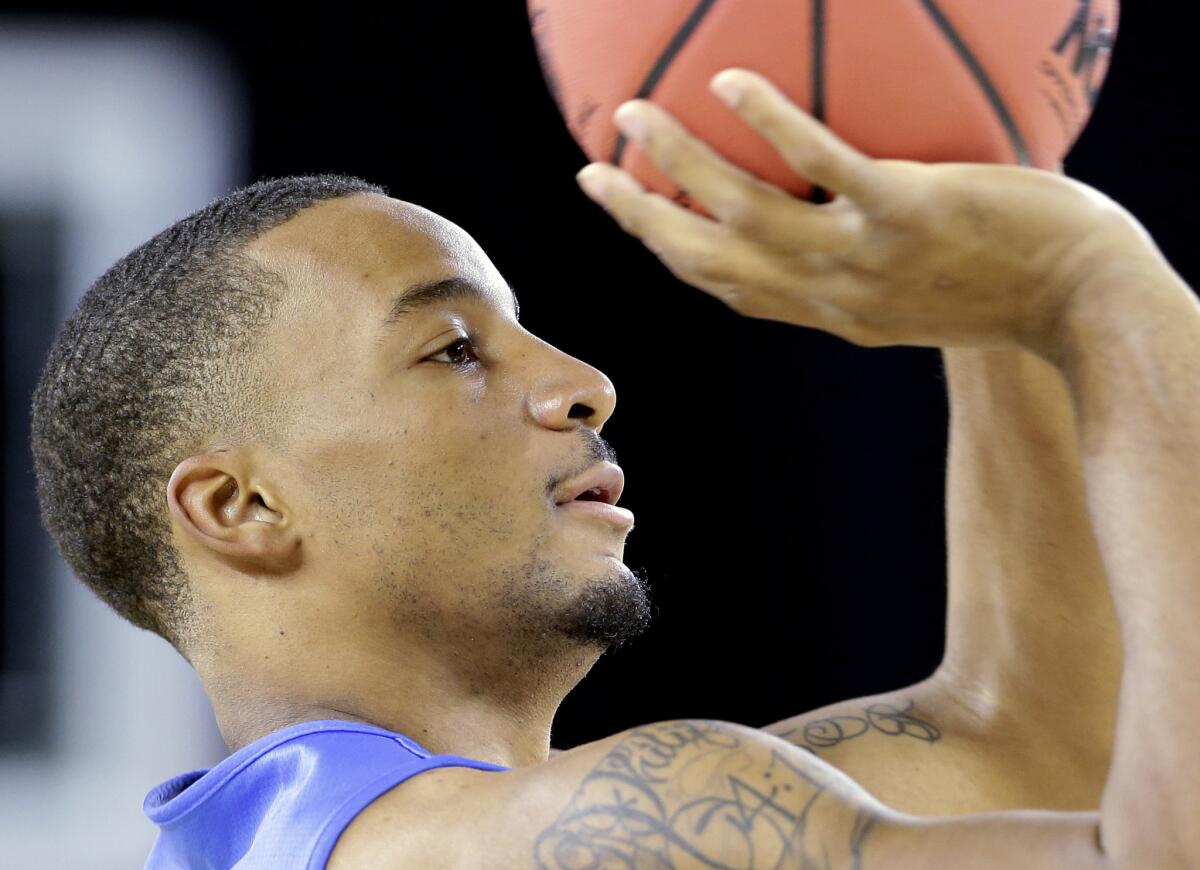UCLA has made historic trips to Houston before

- Share via
UCLA faces Gonzaga in the South Regional semifinals at NRG Stadium in Houston on Friday. The Bruins have made two previous significant trips to the city for games in cavernous football stadiums.
One was big for the Bruins.
One was even bigger for college basketball.
The Bruins won their seventh national title in the Astrodome in 1971, beating Kansas in the semifinals and an unnamed team in the finals (Villanova’s appearance was later vacated).
But in 1968 game, they changed the sport, for better or worse. If you dislike the way television manipulates college basketball, then you dislike the 1968 UCLA-Houston game.
“That game changed basketball forever,” said Lynn Shackelford, a dead-eye shooter for the Bruins in 1968.
The Bruins came to the Astrodome undisputed kings of the college basketball world, with four national titles in five years and a 47-game winning streak. Houston, which had lost to UCLA in the NCAA semifinals the previous season, was undefeated and ranked No. 2. There were matinee idol-like stars, UCLA’s Lew Alcindor (now Kareem Abdul-Jabbar) and Houston’s Elvin Hayes. And a national television audience for the first time.
The Cougars pulled off a 71-69 upset. Hayes scored 29 points and blocked three Alcindor shots. Alcindor, playing with an injured eye, had 15 points.
Light bulbs started clicking for TV sports executives all over the nation. A year later, NBC became the first major network to televise the NCAA championship game nationally.
Not that it was entirely a good thing, in UCLA Coach John Wooden’s eyes.
“He wouldn’t say it was good college basketball,” said Shackelford, who is retired and living in Austin, Texas. “He thought it was detrimental to the future of the game because the result was everyone realized the TV ratings that were available. They started scheduling games on nights other than Friday and Saturday. Coach Wooden thought players should be in class during the week.”
But, like now, there was too much money to ignore the opportunity.
The Astrodome was packed with 52,693 fans, many sitting so far away the players looked like ants. Wooden was reluctant to play the game, but UCLA Athletic Director J.D. Morgan was convinced it made financial sense. Each school received $125,000, four times the NCAA tournament payout at the time.
The game, itself, became folklore.
“There was a book done of the UCLA’s top 100 games,” Shackelford said. “That was the only loss in it.”
Shackelford said the setting was surreal, with the court shipped in from the Los Angeles Sports Arena and placed where second base was located in the Astrodome.
“I don’t know what it’s like now in games played in big stadiums, but I suspect it’s a little more intimate,” Shackelford said. “I found that night a unique experience. There was a lot of air when you shot.”
The other thing that Shackelford remembers is the game that gets little notice: The rematch.
The two teams met in the NCAA semifinals with a healthy Alcindor. The Bruins demolished the Cougars, 101-69, and won their fifth NCAA title by beating North Carolina in the championship.
“I have a tape of that game and I do enjoy watching the first half from time to time,” said Shackelford, who had 17 points in the rematch. “You could make the argument it was the best half a college basketball team has ever played.”
The Bruins led, 53-31, at halftime. Everyone in the UCLA starting lineup finished with more points than Hayes, who scored 10. UCLA’s starting five -- Alcindor, Shackelford, Mike Warren, Lucius Allen and Mike Lynn -- shot 53% for the game.
“Houston was doing pretty good job double-teaming Kareem and that left a bunch of other people open,” Shackelford said. “We didn’t miss. We were motivated by the loss in the Astrodome.”
But the Astrodome game is the one that Shackelford gets to deal with.
“There’s a guy I play golf with, Jim Lyle, and he was a student trainer for Houston that night,” Shackelford said. “Everyone was so far away from the court. There were maybe 50 or fewer people on the court, players, coaches, cheerleaders, referees. All these years later and I play golf with one of them.”
Follow Chris Foster on Twitter @cfosterlatimes
More to Read
Go beyond the scoreboard
Get the latest on L.A.'s teams in the daily Sports Report newsletter.
You may occasionally receive promotional content from the Los Angeles Times.







